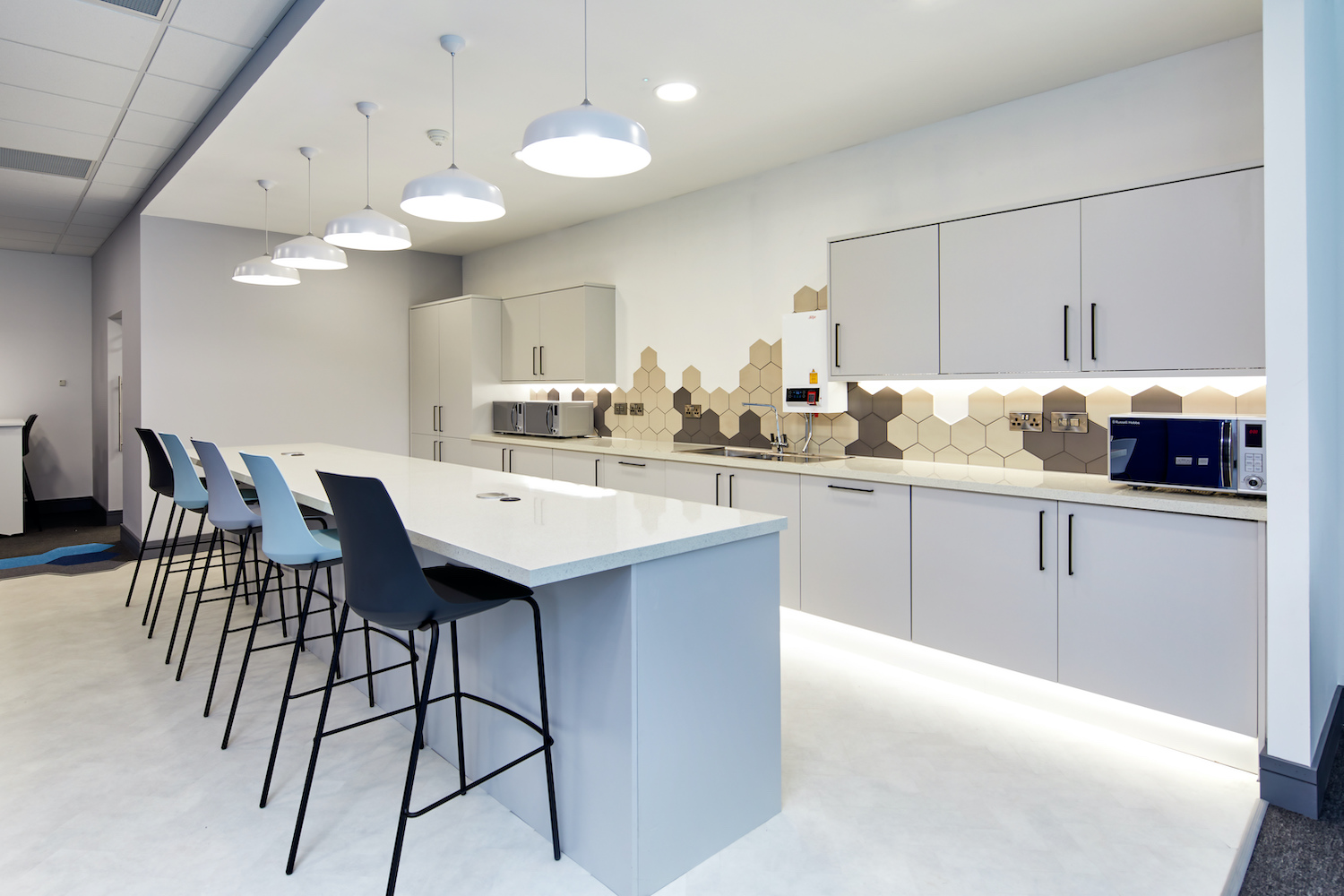
September, 2021
There are lots of considerations that go into a new office fit-out and a key aspect that can get overlooked is how best to incorporate wellbeing into a work environment.
A well-planned office can positively impact the mental health and wellbeing of staff, which can do wonders for productivity, absenteeism and positivity in the workplace. With 12.7% of all workplace absences in the UK attributed to mental health conditions, a few tweaks to your office can drop those numbers significantly.
In this article, we offer a few tips to help you design your office with wellbeing in mind.
Consider the lighting of your office
Our bodies, mood and well-being are affected by our senses, which is why things can feel so gloomy during the long, winter months. Lots of research points to using natural light wherever possible in office environments to promote a more positive outlook. Natural light exposure has been shown to release serotonin throughout our bodies, improving our mood and improving our wellbeing.
When designing your office, try to bring as much natural light into the space as possible. Not only will it improve moods across the office, but it will save you bills on lighting in the process.
Create a space to separate from work, but make safety a priority
Breaking up the working day can help employees find some reprieve during a long shift, so providing a comfortable area that is separate from their workspace is essential. Something as simple as a change of scenery during a break can give staff a much-needed boost of energy to get them through the rest of the day.
You should create break rooms that are versatile enough to be used for informal team meetings, coffee breaks and other activities that are separate from daily workplace activities. This ensures your office space is being used intelligently and gives staff a place to relax and avoid the risks of burnout.
Recent research carried out by the TUC among 2,100 safety reps found that nearly half of employers surveyed were yet to carry out a Covid risk assessment. The virus should have a significant impact on office layout, frequency of usage, purpose and procedures (even fire evacuation plans as recently highlighted by a fire safety campaign). Any work on creating collaborative spaces or break areas needs to take into account virus mitigation and hygiene plans.
Sanitising stations, social distancing, and increased ventilation can help control the spread of the virus. Many office specialist are however reporting that the new normal is already redefining our offices to support a more agile, smart way of working. This applies to all areas, but especially key areas that enable greater social interaction.
Cultivate an agile workplace
Try to make your workspace as flexible as possible for staff to accommodate the diverse nature of office work. Consider all staff while designing your office to empower them and support their overall health, wellbeing and productivity. A great place to start is to look at the furniture and overall layout – can everyone use the current desk arrangement, or could it be improved upon? Is there a way within current the hygiene considerations, to create an environment that encourages using different areas for different types of tasks and regularly ringing the changes to stimulate employees? We have written a number of interesting articles on the benefits of agile working and the trends associated with it.
The current climate
Designing an office with well being in mind can be an inexpensive fix, when balanced against the cost of staff absences. It is probably even more of a consideration as the pandemic continues. Wellbeing is about feeling safe these days, as well the office being a great place to work. If staff are to benefit from the interactions they have missed, for the sake of their overall wellbeing they need to believe the company is considering every aspect of the health.